There are as many ways to garden as there are gardeners and no compost is quite the same, either. There are a thousand variables: original ingredients, overall size of your compost pile, temperatures and moisture levels it experiences and so many other factors allow teeming biological life to thrive…or not. Like snowflakes, no one cup of compost is identical to the next! We love to share gorgeous organic compost from our dear Friend Jonathan Hunt over the hill in Branchport, both online as well as scoop-your-own from our mountain at Fruition’s Garden Store on weekends in April and May.
Compost is indeed ‘black gold,’ especially if it is truly ‘finished.’ Be sure there are no traces of original ingredients: if you can say, ‘ahhh! look at this egg shell!’ or ‘this used to be an orange peel!’, your compost isn’t finished and could harm more than help your garden. Finished compost is dark, smelling of rich, delicious earth with no trace of original ingredients.
And Friends, if you’d love to dive so much deeper into composting, hop into Fruition’s free online Composting with Confidence Mini-Course!
There are so many gifts finished compost brings and here are our top five:
1. Nourish Your Garden Soil
Feeding the soil is the foundation that feeds us all!
Compost adds abundant organic matter as well as a wide spectrum of micro-nutrients to nourish your soil as well as your plants. And Friends, think of compost as a long-term soil conditioner more than than a short-term fertilizer: Yes, there are nutrients, but think of compost as your long-term investment in soil health while fertilizers like our organic granular and chicken compost crumbles are immediately available for your growing plants. Two sides of the same coin, both crucial for healthy, thriving soils and beautiful, abundant gardens. Each compost will have a unique nutrient profile and the compost we share has an N-P-K of 3-1-3 plus an abundance of micronutrients to feed both your soil and your plants.
You’ve many options for incorporating compost into your garden and here are a few:
~ before tilling, forking or otherwise turning over your garden (which is, of course, optional!), spread a relatively even layer of compost over the soil, turning it in as you go. How much? Even a little is better than nothing and anything between two and six inches will dramatically help nourish your garden.
~ if you’re not tilling, simply spread your compost over your garden beds and be confident the rain as well as earthworms and vibrant soil ecology will incorporate your compost into your soil across the seasons.
~ As you’re planting seedlings, tuck a handful of compost into the hole to offer a host of macro and micronutrients to help them grow. We love snacks and our seedlings do, too! We add a pinch of our organic granular and chicken compost crumbles for a serious boost, too.
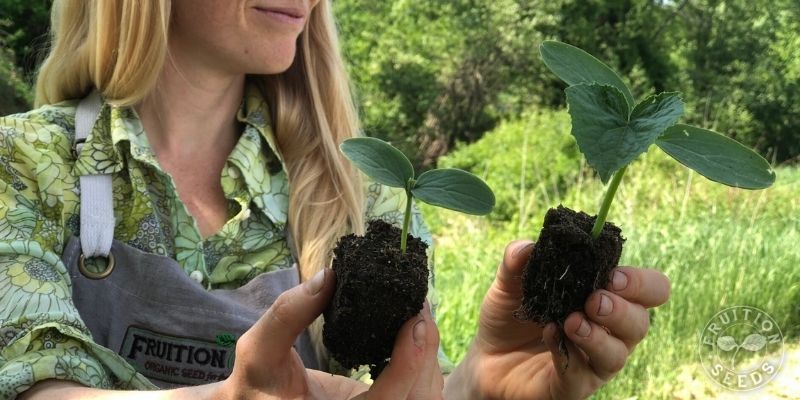
2. Fill Your Containers & Raised Beds
Finding high quality soil to fill containers and raised beds is often a challenge. Though filling containers and raised beds exclusively with compost doesn’t offer plants optimum soil texture, you can confidently fill beds with a 1:1 ratio of top soil to compost.
If you haven’t already, enjoy Fruition’s free online Container Gardening Mini-Course!
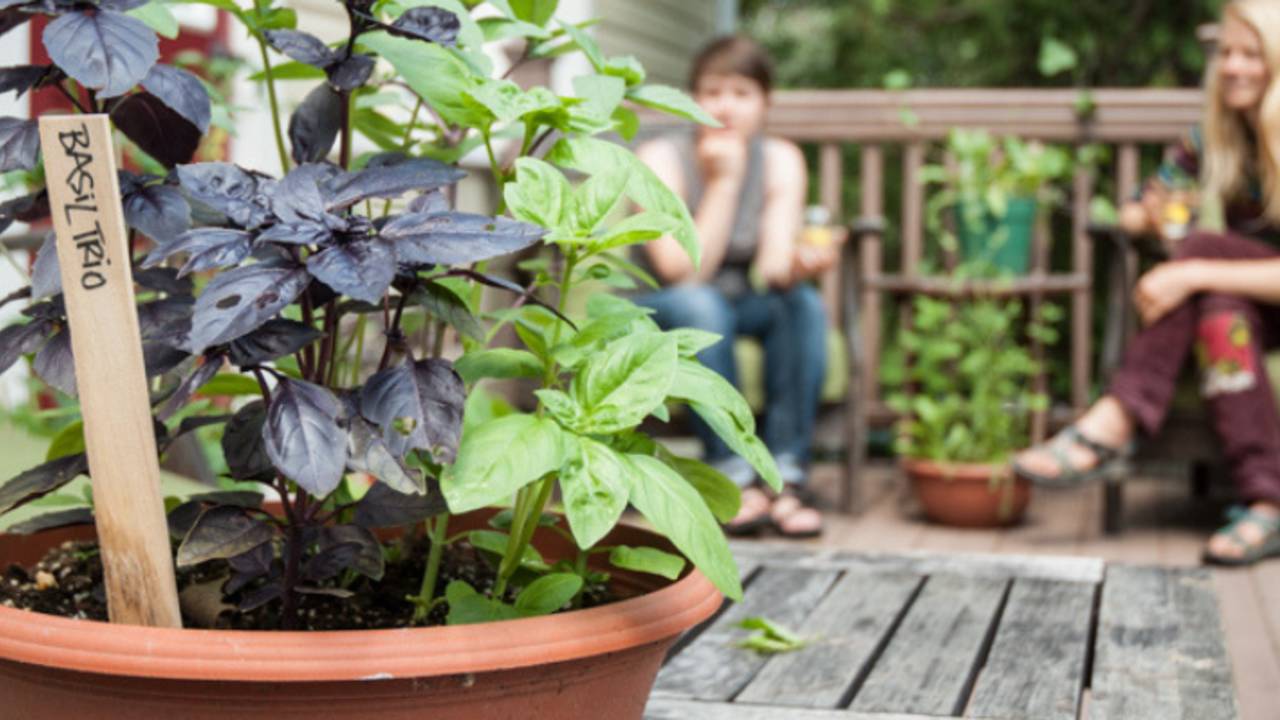
3. Compost Tea
We use compost tea, worm castings tea and dilute fish emulsion on our farm in three main ways:
~ water transplants
~ dunk transplants in compost tea / dilute fish emulsion before planting them
~ water and / or foliar feed the garden all summer
To make your own compost tea, soak
~ 2 cups of finished compost with
~ 1 gallon non-chlorinated water in a
~ 5 gallon bucket
for two to five days in a warm place before straining and using it. There are ten thousand recipes for making compost tea online, including many that amplify the biology using molasses, aeration and other techniques for any given cup of compost to make even more tea.
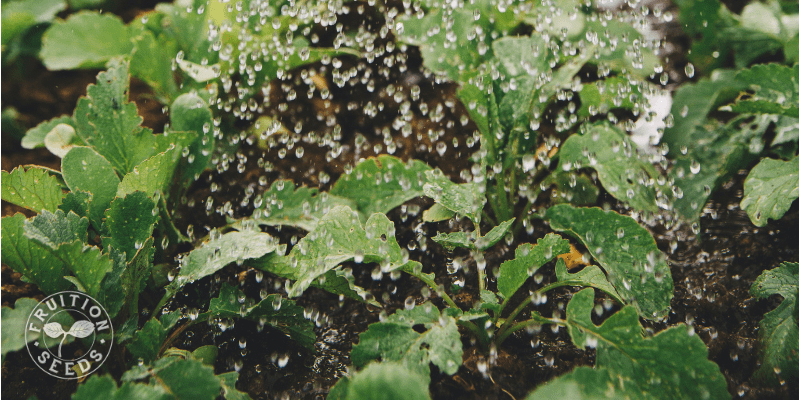
4. Feed Your Trees: Build Your Tree Ring
Fruit and nut trees thrive with a large (three foot minimum) ‘tree ring’ around them. Removing grass and other plants from your tree ring is key. One of the easiest ways to both feed your trees and reduce weed pressure is to spread 2 to 3 inches of compost in spring as well as fall, covering this compost with 4 to 6 inches of wood chips. As you’re building and maintaining your tree ring, be sure the compost is away from the trunk and thus thin at the center, helping the trunk stay aerated and resist rot.
Fruition’s free course shares dozens of video tutorials to surround you with abundance for seasons to come. We look so forward to joining you on the journey! 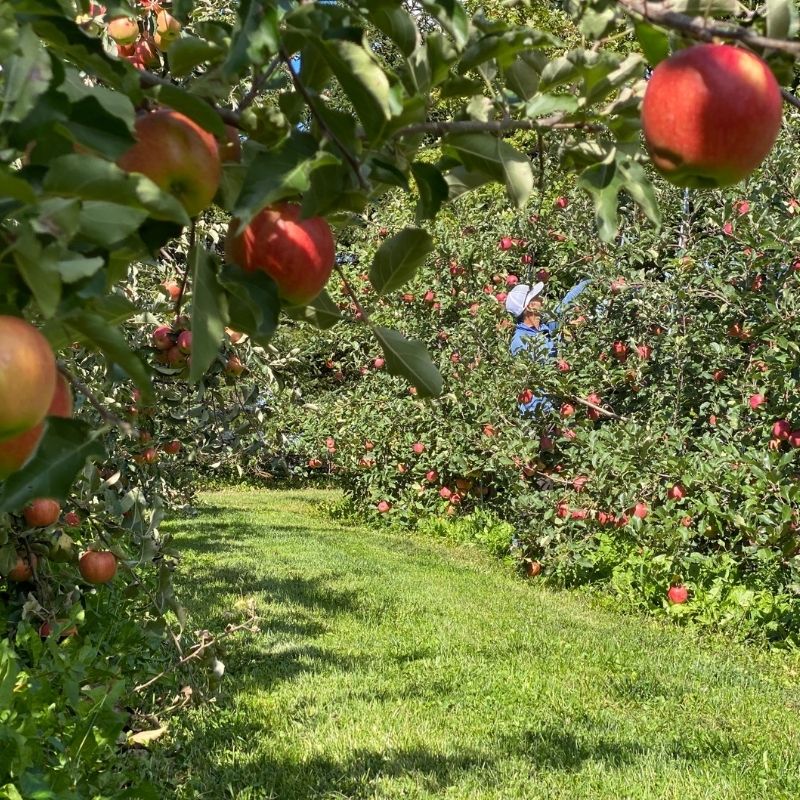
Enjoy Fruition's
Organic Apples & Orcharding Course!
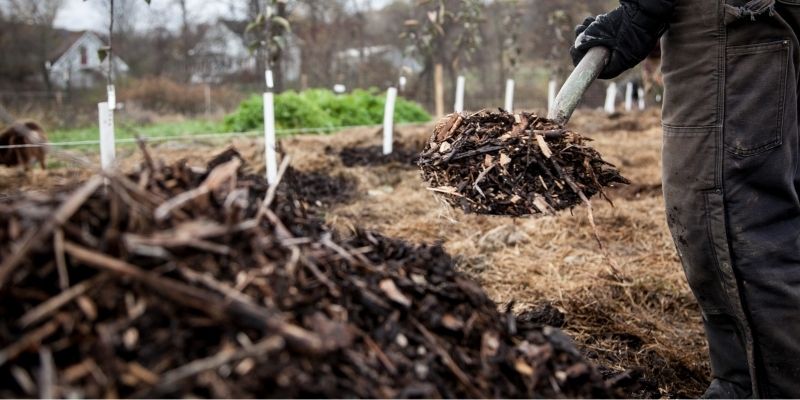
5. Share with Friends!
It’s hard to have too much compost and ohhhh when you have enough to share, it’s the best feeling in the world! We love when folx come to Fruition’s scoop-your-own compost pile (well, mountain…!) in spring to bring compost home for their friends as well as themselves. We each share the abundance we have access to and it’s sincerely such a joy to share our compost with you, Friends. Thanks for sharing it with your friends, too!
May the compost we share and spread amplify abundance for us all.
Sow Seeds & Sing Songs,

& the whole Fruition crew
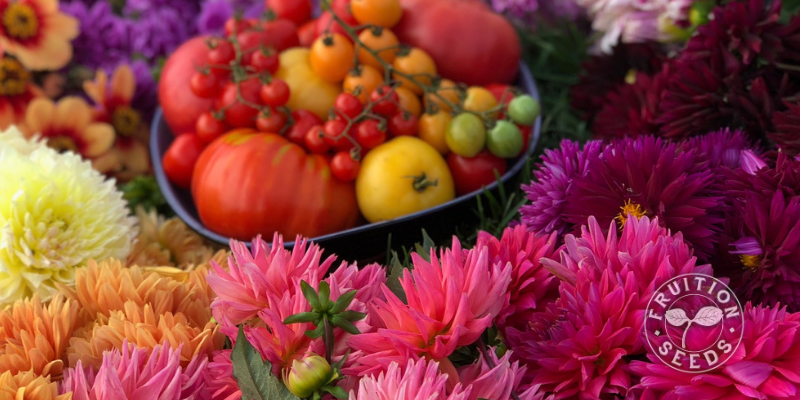

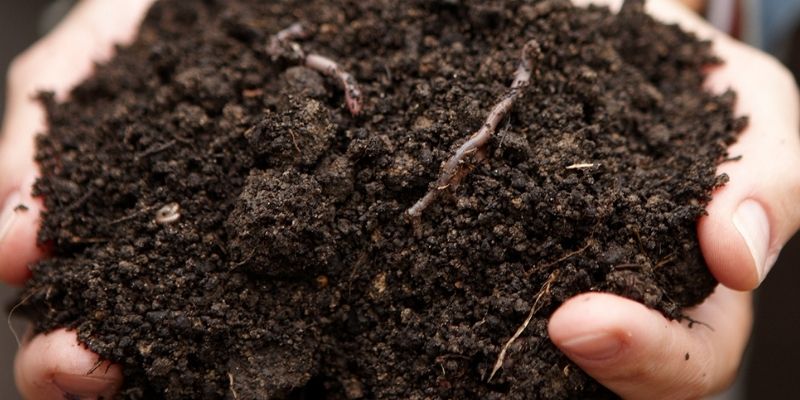
1. I caught a printer’s error near the top and fixed it in big blue type. I do the same for a friend’s promotions–Catskills Comfey. His business if growing fast. We want to come and see you someday.
2. Thanks for all your help and encouragement.
3. Your nasturtium seeds did germinate, not yet anyway after more than a month. Must have been the weather.
Hi David, Thanks for growing with us! Looking forward to connecting with you on the farm one day!
Melissa